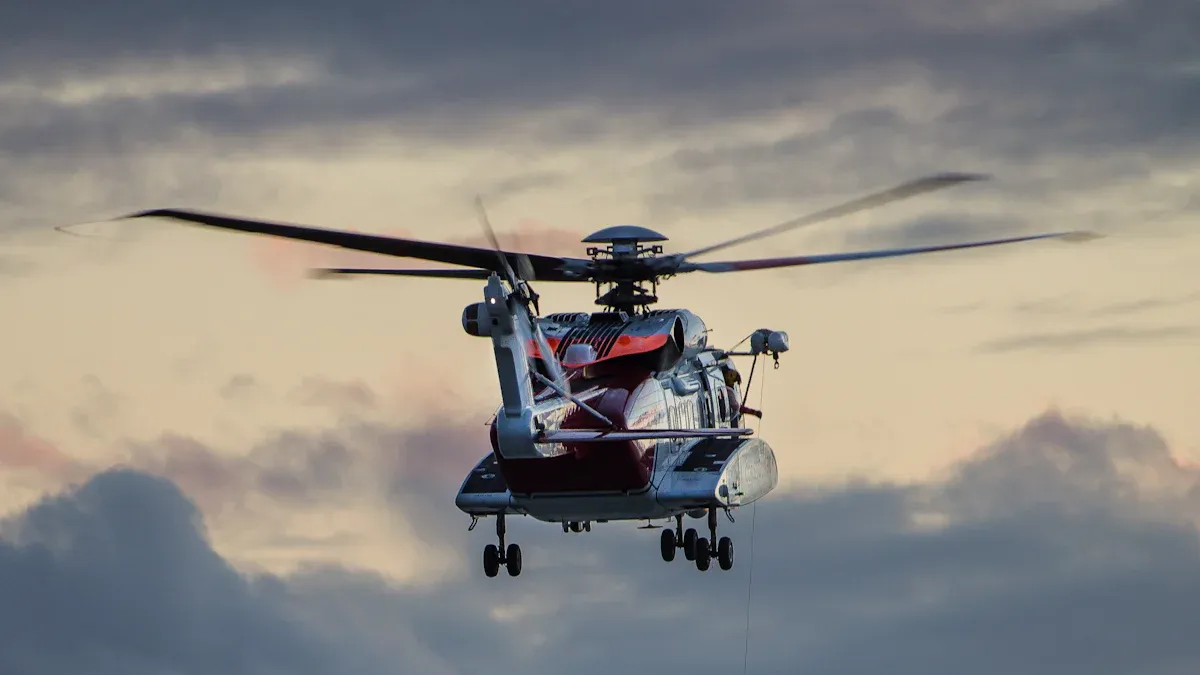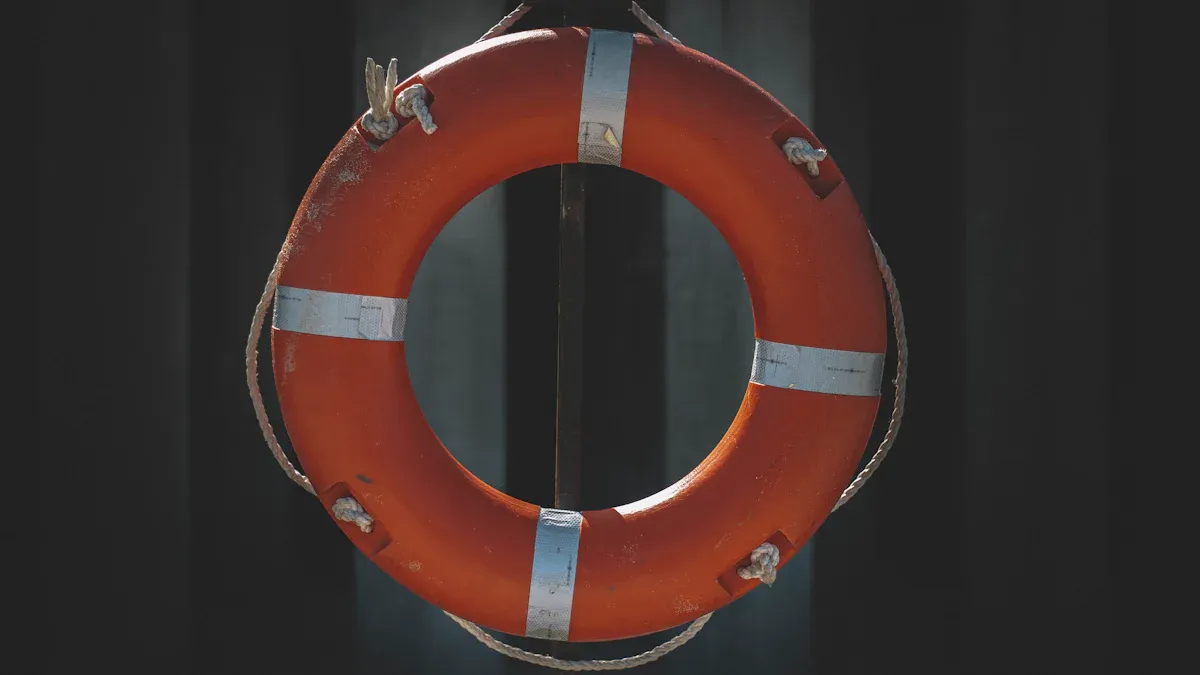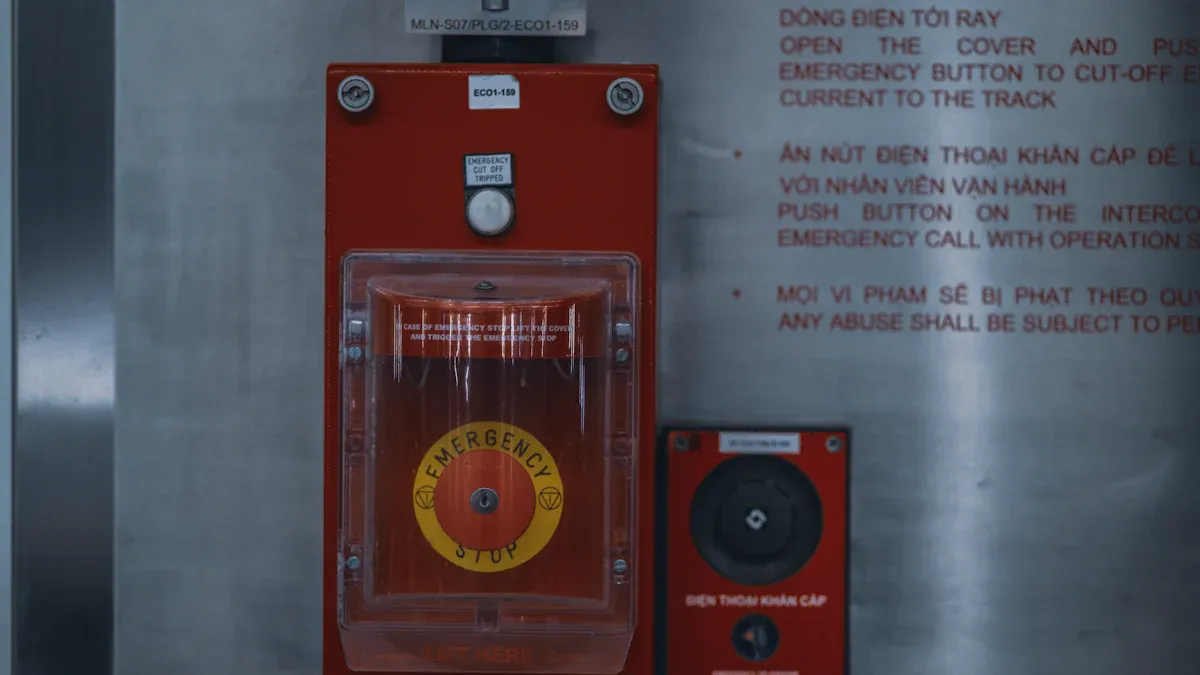
Coastal hospitals face increasing risks from frequent and severe flooding.
- By 2050, flood frequencies are expected to rise 5–10 times compared to 2020.
- Major flooding could occur almost daily along U.S. coastlines by 2100.
Marine-grade emergency phones, including marine industrial telephones, provide reliable communication during these events. Their waterproof design (up to IP66) and durable aluminum alloy construction ensure functionality in harsh conditions. These phones, often used as outdoor waterproof telephones, resist saltwater corrosion and high humidity, making them ideal for flood-prone areas. Additionally, mining explosion proof telephones are essential for ensuring safety in hazardous environments.
Hospitals rely on marine industrial telephones to maintain safety and operational continuity during emergencies.
The Challenges of Flood-Prone Coastal Areas

Environmental Factors Affecting Communication Systems
Coastal environments present unique challenges for communication systems. Saltwater corrosion rapidly damages electrical components, leading to safety hazards and system failures. High humidity causes moisture buildup, which can result in electrical malfunctions. Flooding often submerges communication devices, creating risks of short circuits and fire hazards. These environmental factors make standard communication systems unreliable in flood-prone areas.
To combat these issues, experts recommend using corrosion-resistant materials and protective coatings. Proper sealing and dehumidifiers also help manage humidity levels in critical areas. Marine industrial telephones are specifically designed to address these challenges. Their waterproof and corrosion-resistant features ensure functionality even in extreme conditions, making them a reliable choice for coastal hospitals.
Operational Risks for Coastal Hospitals
Flood events significantly disrupt hospital operations in coastal areas. Rising water levels can damage infrastructure, delay emergency responses, and compromise patient safety. A case study from Leucate, Languedoc, France, highlights these impacts. Researchers measured water levels using LIDAR data and field observations, finding an increase from 0.85 meters in 2013 to 1.05 meters in 2014. This data underscores how sea level rise and flood timing exacerbate operational risks.
Hospitals in flood-prone regions must prioritize communication reliability to mitigate these risks. Marine industrial telephones play a critical role in maintaining emergency communication during floods. Their durability ensures that hospitals can coordinate effectively, even under challenging conditions.
Why Marine Industrial Telephones Are Ideal for Coastal Hospitals
Corrosion Resistance and Waterproof Design
Coastal hospitals require communication systems that can endure harsh environmental conditions. Marine industrial telephones excel in this area due to their corrosion-resistant and waterproof features. These phones use die-cast aluminum coated with epoxy powder, which prevents rust and withstands prolonged exposure to saltwater. Their weatherproof design, certified by FCC, RoHS, CE, and ISO9001, ensures reliable performance even in extreme conditions. With an IP67 ingress protection rating, these phones resist water and dust, making them ideal for flood-prone areas.
Unlike standard phones, marine industrial telephones feature a cast aluminum weatherproof case. This design protects internal components from moisture and corrosion, ensuring long-term functionality. Hospitals in coastal regions benefit from these robust features, as they reduce the risk of communication failures during emergencies.
극단적 인 날씨에 있는 내구성
Marine industrial telephones are built to endure the challenges of extreme weather. Their shockproof design and moisture resistance make them reliable during storms and heavy rainfall. These phones also include weatherproof capabilities, allowing them to function in high winds and fluctuating temperatures.
A comparison highlights their advantages over standard phones:
| Feature | Marine-Grade Telephones | Standard Phones |
|---|---|---|
| Durability | Designed to withstand harsh weather | Not designed for extreme conditions |
| Safety Features | Shockproof and waterproof | Limited safety features |
| Ease of Use | User-friendly in stressful situations | May not be as intuitive |
This durability ensures that hospitals can maintain communication, even under the most challenging circumstances.
Long-Term Reliability and Cost Efficiency
Marine industrial telephones offer long-term reliability, reducing maintenance costs for hospitals. Their robust construction minimizes the need for frequent repairs or replacements. By investing in these phones, hospitals save money while ensuring uninterrupted communication.
The user-friendly design of marine industrial telephones also enhances efficiency. Staff can operate these phones easily during emergencies, reducing response times. This combination of reliability and cost efficiency makes them a practical choice for coastal hospitals.
Enhancing Emergency Response with Marine-Grade Phones

Ensuring Communication During Floods
Floods often disrupt traditional communication systems, leaving hospitals vulnerable during emergencies. Marine-grade phones provide a dependable solution by maintaining functionality even when submerged or exposed to heavy rainfall. Their waterproof design ensures that critical communication lines remain open, allowing hospital staff to coordinate effectively. These phones also resist damage from saltwater, a common issue in coastal areas.
Marine-grade phones, such as the 해양 산업 전화, are specifically designed for these challenging conditions. Their robust construction and advanced sealing technology prevent water ingress, ensuring uninterrupted operation. This reliability is crucial for hospitals to manage patient care and emergency response during floods.
Supporting Patient Safety and Emergency Coordination
Reliable communication plays a vital role in protecting patient safety during emergencies. Marine-grade phones enable hospital staff to communicate quickly and clearly, reducing delays in critical decision-making. For example, during a flood, these phones allow teams to coordinate patient evacuations, allocate resources, and contact external emergency services.
The user-friendly design of these phones ensures that staff can operate them efficiently, even under stress. Features like large buttons and clear audio enhance usability, making them ideal for high-pressure situations. By supporting seamless communication, marine-grade phones help hospitals maintain order and prioritize patient safety.
Strengthening Disaster Preparedness
Disaster preparedness requires tools that can withstand extreme conditions. Marine-grade phones provide hospitals with a reliable communication system that enhances their readiness for floods and other emergencies. Their durability and long-term reliability reduce the risk of equipment failure, ensuring hospitals remain operational during crises.
Hospitals can integrate marine-grade phones into their broader disaster response plans. These phones support drills and training exercises, helping staff familiarize themselves with emergency protocols. By investing in durable communication tools, hospitals strengthen their ability to respond effectively to disasters.
Marine-grade emergency phones empower coastal hospitals to overcome flood-related challenges. Their unmatched durability and reliability ensure seamless communication during emergencies. These phones enhance operational efficiency and disaster readiness.
Investing in marine-grade phones is not just a choice; it is a commitment to safety, preparedness, and uninterrupted patient care in flood-prone areas.
제품 정보
What makes marine-grade phones different from standard phones?
Marine-grade phones feature waterproof, corrosion-resistant designs and durable materials. These qualities ensure reliable communication in extreme weather and flood-prone environments. 🌊
How do marine-grade phones support hospital disaster preparedness?
Marine-grade phones enhance disaster readiness by providing reliable communication during emergencies. Their durability ensures hospitals can coordinate effectively, even under challenging conditions. 🏥
Are marine-grade phones cost-effective for hospitals?
Yes, marine-grade phones reduce maintenance costs due to their long-term reliability. Hospitals save money by avoiding frequent repairs or replacements. 💰


